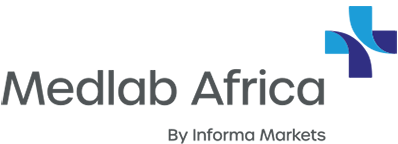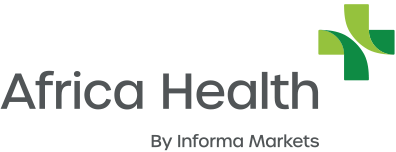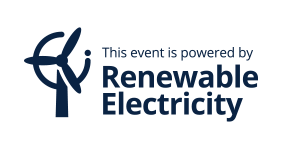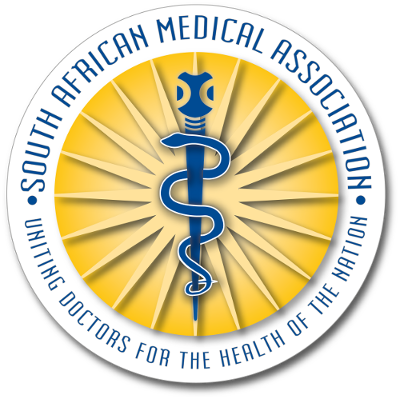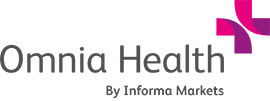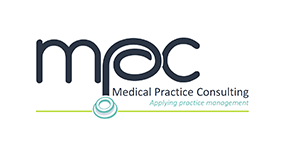Interview with Merilynn Steenkamp
General Manager, Southern Africa Network
Roche Diagnostics
Merilynn’s dedication to the healthcare industry spans two decades, showcasing her multi-disciplinary leadership in public health, early diagnosis and preventative healthcare. Her career has encompassed leadership positions at major pharmaceutical companies like Sanofi Pasteur/Zentiva, Pharmaplan and Pfizer. As General Manager, Southern Africa countries for Roche Diagnostics, Merilynn leverages her extensive marketing, sales and management expertise to establish strategic partnerships that facilitate access to essential diagnostic technology for patients in Africa.
Tell us about your organisation, its activities in Africa, and the journey to date.
Roche operates in over 40 countries across Africa with a physical affiliate presence in 12 of those. We have over 850 employees across the continent, one research and development site in Cape Town and a Scientific Campus in South Africa.
Our ambition for Diagnostics is to increase access to high-quality In-Vitro Diagnostic (IVD) testing tenfold in the next 10 years. Working with international agencies, non-governmental organisations and governments at the global, regional and local levels, Roche takes a holistic and collaborative approach to improve health systems and strengthen Africa’s diagnostic backbone and capacity.
Please dispel some misconceptions about healthcare in Africa and identify some areas of growth and opportunities.
One major misconception is that infrastructure is Africa’s primary challenge in achieving Universal Health Coverage (UHC). Of course, lack of infrastructure is a significant barrier, but it is not isolated and should not be the only focus where governments allocate budgets. The development of people is also integral. World Bank research has shown that there are 0.2 doctors for every 1000 people in sub-Saharan Africa – well below the global average of 1.6.
Along with investment in infrastructure, there is an excellent opportunity for investment in training, hiring, better remuneration and insurance. Through awareness campaigns, medical research and health education across each country, prevention would save governments billions with a relatively minor investment. Prevention on a large scale also begins with investment in diagnostics. Diagnostics can drive 70% of all clinical decision-making, yet they are apportioned less than 5% of hospital budgets. The Lancet Commission on Diagnostics indicates that the median availability of diagnostics is only 19% in basic primary care facilities surveyed in low-income and lower-middle-income countries – many of which are African.
Diagnosis informs treatment and care decisions right at the beginning of any patient’s healthcare journey. Consequently, prioritising diagnostics across Africa can empower individuals, improve health outcomes and ultimately drive economic growth – because healthier populations are more economically active.
Highlight your areas of expertise and the solutions targeted towards the development of healthcare in the African continent.
Roche Diagnostics offers a uniquely broad product portfolio and supplies a wide array of innovative testing products and services to researchers, physicians, patients, hospitals and laboratories in the fields of diabetes care and anticoagulation therapy, molecular biology, clinical chemistry, immunology and applied science, diagnosing communicable and non-communicable disease areas.
Our portfolio includes:
- Blood glucose meters for people with diabetes
- Point-of-care testing devices for use in doctors’ offices
- High-throughput analysers for hospitals and commercial diagnostic laboratories
- State-of-the-art instruments and reagents for life science research
Tell us about your investments, partnerships and upcoming goals for the next 12 months.
For the foreseeable future, we will be seeking out a diversity of partners and solutions to move ahead – between governments, development and technical agencies, implementing organisations, civil society and the private sector.
Leveraging a broad range of partners' strengths and expertise brings solutions to complex challenges.
Partnership is the core of much of the success we’ve seen so far in delivering access for patients and will be one of the key mechanisms to saving many more lives in years to come.
Through various projects across Africa, we have seen the effectiveness of public-private partnerships in action, for example:
- Roche, through its Global Access Program and The Global Fund to Fight AIDS, Tuberculosis and Malaria, joined forces to build and strengthen diagnostic capacity and pandemic preparedness in low-and middle-income countries fighting against HIV and tuberculosis (TB).
- Through the Roche Scientific Campus in Johannesburg, South Africa, we have trained more than 8,300 Laboratory Professionals across sub-Saharan Africa to address critical shortages of lab technicians and support the need for more quality diagnostic services.
- The Kilimanjaro Christian Medical Centre (KCMC), Philipps-University Marburg and Roche Diagnostics partnered with DEG - a German-based development finance provider from the German Federal Ministry for Economic Cooperation and Development. The central objective of the partnership is to strengthen diagnostics infrastructure and capacity in north-eastern Tanzania by creating a state-of-the-art Centre of Excellence. The Centre is designed to drive sustainable capacity building and develop the skill sets necessary to meet local needs.
- Launched in May 2018, Go Further is an innovative public-private partnership between PEPFAR, the George W. Bush Institute, the Joint United Nations Programme on HIV/AIDS, Merck, and Roche aiming to end AIDS and cervical cancer in Sub-Saharan Africa within a generation. We have initiated programs in Eswatini and Uganda in co-creation with all stakeholders to take an end to end view from the patient's perspective to help improve gaps along the journey.
- In Kenya, the EMPOWER project is an integrated women’s health initiative aimed at contributing to the prevention, early diagnosis and treatment of breast and cervical cancers. In a unique partnership between public, private and not-for-profit organizations, 17 EMPOWER clinics have been established across rural Kenya. These clinics have also trained 300 community health workers and healthcare professionals in facility- and community-based screening. Thus far, more than 25,000 women have been screened and 950 women are now receiving treatment.
- Roche partners with the Johns Hopkins Program for International Education in Gynecology and Obstetrics (Jhpiego). Together, we aim to improve women’s health outcomes by removing barriers to early detection and treatment.
What will you be showcasing at Africa Health and Medlab Africa, and what opportunities are you looking forward to at the event?
We will showcase our latest diagnostic innovations in non-communicable and infectious disease areas. Our adoption of innovation is not limited to the development of in-vitro diagnostics for high-burden diseases such as HIV/AIDS and TB but also encompasses other aspects of process workflow to create sustainable solutions for the challenges posed within resource-limited regions.
We are committed to capacity-building initiatives through ongoing certified training of laboratory scientists – for example, at the Roche PCR Academy in Johannesburg, to ensure the most accurate and reliable results.
We also apply our expertise to precise and robust diagnostic tests, automated systems and integrated solutions in Clinical Chemistry, Haematology, Coagulation and Immunodiagnostics.
We look forward to networking and exploring partnerships to improve healthcare in Africa.
Is there anything else you would like to add?
Earlier this year, the WHO (World Health Organization) Executive Board voted in favour of including the resolution “Strengthening diagnostics capacity” on the WHA 2023 agenda. This is a critical victory for African people. It signalled a firm understanding by the WHO of the importance of increasing access to quality diagnostics in low-to-middle-income countries – particularly African countries. At Africa Health, we aim to seize this opportunity to power progress, transform the African healthcare narrative and ensure that every African has access to quality diagnostics and healthcare. We will continue to leverage the power of partnership to build resilient healthcare systems and save lives. Let’s use this opportunity to work together to power progress, transform the narrative and ensure that every African has access to quality diagnostics and healthcare.
